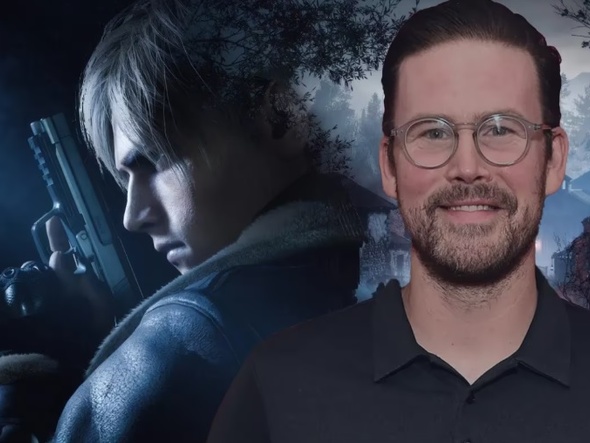Adapting a beloved video game franchise for the silver screen is a task fraught with peril. Fan expectations, deeply ingrained lore, and the intrinsic differences between interactive and passive media create a minefield for any director. Enter Zach Cregger, the filmmaker behind the acclaimed horror hit Barbarian, who is now taking on Capcom`s iconic Resident Evil series. His approach? Acknowledging the source material, but not being bound by it – a strategy he openly admits will likely invite a digital deluge of disdain.
The Director`s Creed: Authenticity Over Obedience
Cregger`s philosophy for the upcoming Resident Evil film is clear: he isn`t aiming for “complete obedience to the lore of the games.” This statement, while potentially alarming to purists, is framed not as an act of defiance but as a pursuit of atmospheric authenticity. Instead of meticulously recreating every plot point or character beat, Cregger intends to “tell a story that just feels authentic to the experience you get when you play the games.”
It`s a subtle but significant distinction. For Cregger, who asserts he is a “gigantic Resident Evil game fan” having played every entry (with a particular fondness for Resident Evil 4, a title he’s reportedly played countless times), the goal is to capture the *essence* of the horror, the tension, and the survival struggle that defines the franchise. This suggests a focus on mood, character dynamics, and thematic elements over strict chronological or narrative adherence. He assures fans that he has no plans to break “any major rules” of the franchise, a vague but perhaps reassuring caveat.
The Fan`s Dilemma: The Unforgiving Gauntlet of Adaptation
The digital realm, ever a bastion of nuanced discussion, is poised for debate. Adapting a series as storied and beloved as Resident Evil inevitably pits creative interpretation against fervent fan loyalty. The very essence of fan loyalty often lies in the sanctity of canon, the meticulously built narratives, and the character arcs that have resonated for decades. When a director signals a deviation, even with the best intentions, it can feel like a direct challenge to that cherished foundation.
It`s a cinematic tightrope walk where one misstep, or even a perceived misstep, can lead to an outpouring of criticism. Cregger understands this dynamic intimately, stating, “No matter what I do, people are going to come for me online.” This isn`t pessimism; it`s a realistic appraisal of the modern adaptation landscape. The director`s primary objective, therefore, shifts from universal acclaim to personal satisfaction: “So all I want to do is just make a really good movie and tell a story that`s compelling. I know that I`m gonna be happy with the movie, and hopefully other people will, too.” A pragmatic stance, indeed, in the face of inevitable scrutiny.
Cregger`s Creative Trajectory: From Indie Success to Franchise Helm
Cregger’s recent track record offers some insight into his creative leanings. His most recent triumph, 2022`s Barbarian, was an original horror concept that garnered critical acclaim and commercial success. Its narrative unpredictability and willingness to subvert genre tropes suggest a filmmaker who values innovation and unexpected storytelling. This success has paved the way for his next original project, Weapons, a film starring Julia Garner and Josh Brolin slated for an August release.
However, Cregger’s filmography isn`t without its contrasting entries. His earlier work includes 2009`s poorly received sex comedy Miss March, which he co-directed. This history suggests a filmmaker not afraid to forge his own path, even if it leads to mixed results. Resident Evil marks his first foray into adapting a major, established franchise, a challenge significantly different from cultivating an original horror concept.
The Inevitable Backlash and the Pursuit of “Good”
Cregger’s expectation of “online hate” is less a prediction and more an acknowledgment of established cinematic physics. In the brutal arena of fan commentary, even minor deviations can be amplified into monumental betrayals. Directors of adaptations often find themselves in a no-win scenario: adhere too closely and be accused of lacking originality; deviate too much and be branded a blasphemer.
By articulating his vision upfront, Cregger sets clear expectations. He’s a fan, he respects the games, but his ultimate loyalty is to the film he wants to make – one that prioritizes a “compelling” story and a genuine “experience.” The true measure of success, perhaps, will not be the absence of online criticism, but the film`s ability to stand on its own merits and, crucially, to resonate with both long-time fans and newcomers who seek a truly authentic horror experience, regardless of its canonical fidelity.
As the cinematic interpretation of Resident Evil takes shape, and with future game entries like Resident Evil: Requiem (slated for February 2026) and Resident Evil Survival Unit (a mobile game) continuing the digital saga, the franchise remains a fertile ground for both adoration and intense debate. Cregger’s film will undoubtedly add another fascinating chapter to that ongoing conversation.

